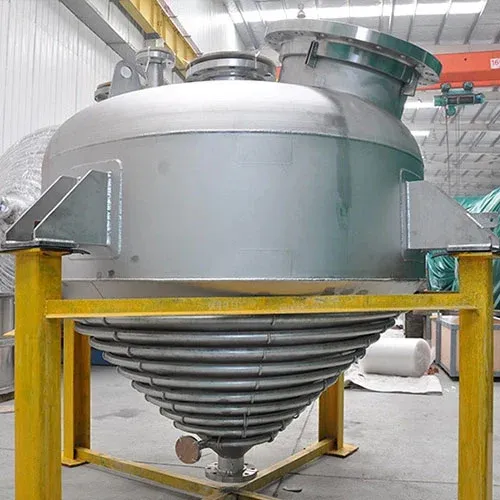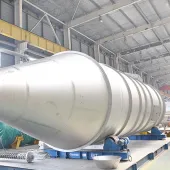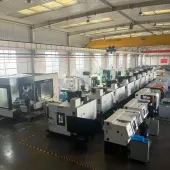
The Role of Titanium Equipment in Green and Sustainable Industries
As industries around the world transition toward more sustainable and environmentally responsible operations, the choice of materials used in industrial equipment plays a critical role. Titanium has emerged as a key material in the green sector — offering a powerful combination of corrosion resistance, durability, and compatibility with eco-friendly processes.
In this article, we explore how titanium equipment is contributing to the development of greener technologies in areas like wastewater treatment, desalination, clean energy, and emissions control.
1. Wastewater Treatment: Long-Term Resistance to Corrosive Effluents
Municipal and industrial wastewater often contains aggressive substances like:
- Chlorides
- Acids and alkalis
- Organic solvents
- Biological contaminants
These fluids can corrode stainless steel or plastic systems over time. Titanium, however, maintains its structural integrity in such harsh environments.
Common Titanium Equipment in Wastewater Plants:
- Heat exchangers for sludge treatment
- Titanium piping for corrosive wastewater transfer
- Anodic systems for electrochemical oxidation (EO) treatment
The result? Longer equipment life, fewer chemical leaks, and lower environmental risk from material degradation.
2. Desalination and Marine Water Recovery
Titanium is a preferred material in reverse osmosis (RO) and thermal desalination plants because it is immune to saltwater corrosion and biofouling.
Applications Include:
- Titanium plate heat exchangers
- Condensers for multi-effect distillation (MED)
- Brine circulation pumps and pipework
By reducing maintenance and avoiding metal ion contamination, titanium helps deliver clean, safe drinking water in arid and coastal regions — a vital aspect of global water sustainability.
3. Flue Gas Desulfurization (FGD) and Emission Control
In coal-fired power plants and waste incinerators, flue gas desulfurization (FGD) systems remove harmful SO₂ before gases are released into the atmosphere.
FGD systems use aggressive limestone-slurry and acidic exhaust streams, which quickly degrade traditional materials.
Titanium is used in:
- Absorber linings
- Spray headers and nozzles
- Piping for high-chloride slurries
These components maintain performance under high heat and acidic conditions, helping power plants reduce sulfur emissions in line with environmental regulations.
4. Hydrogen and Clean Energy Systems
With the rise of hydrogen as a clean fuel source, the need for corrosion-resistant, hydrogen-compatible materials is growing. Titanium offers excellent hydrogen embrittlement resistance, making it ideal for:
- High-pressure hydrogen vessels
- Electrolyzers for green hydrogen production
- Titanium anodes in alkaline fuel cells
As the world pushes toward net-zero targets, titanium is playing a critical role in the infrastructure of tomorrow’s energy systems.
5. Recycling and Circular Economy
Unlike many industrial materials, titanium is fully recyclable without loss of mechanical properties. Titanium equipment that reaches end-of-life can be:
- Collected
- Melted
- Reused in high-grade applications
This aligns perfectly with the circular economy model, reducing waste and minimizing the environmental footprint of industrial operations.
Conclusion
Titanium is not just a performance metal — it’s a sustainability enabler. Its long service life, corrosion resistance, recyclability, and compatibility with clean technologies make it a smart investment for any business focused on long-term environmental responsibility.
At Titanium Seller leads, we design and supply titanium equipment built for tomorrow’s industries — desalination, clean energy, emissions control, and more. If you’re developing a green project, talk to us about how titanium can support your goals.
Quick Contact
Related Products
-

Key Industrial Applications of Titanium Equipment and Why Demand Is Growing
Titanium Equipment
-

How Titanium Equipment Enhances Industrial Performance
Titanium Equipment
-

Titanium Equipment
Titanium Equipment